Final Words From Wilbert Cruz: The First Doctor of Medical Physics Graduate
Congratulations Dr. Wilbert Cruz, the first graduate of the new Doctor of Medical Physics program, who is now a Medical Physicist at Landauer Medical Physics in the Houston area.
Tell me about yourself, why did you pick UT Health Science Center and the Doctor of Medical Physics program?
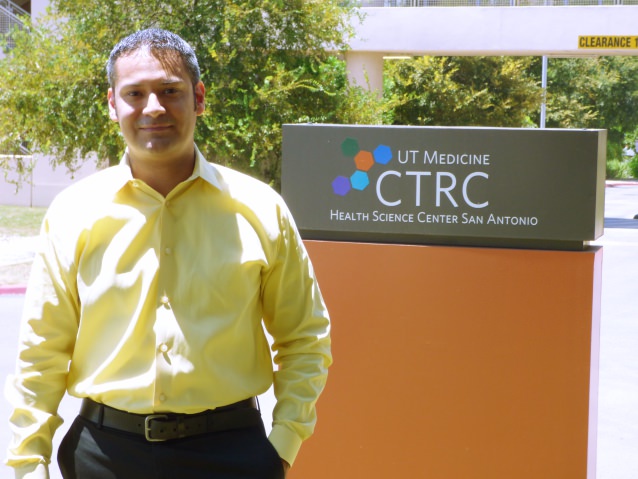
It was all by chance that I ended up here at University of Texas Health Science Center San Antonio. I happened to contact Loretta Edwards, the academic programs coordinator of the Doctor of Medical Physics program (DMP), and she said she knew of a professor that might want a student.
Soon after that I was contacted by Dr. Carlos Esquivel and he accepted me at that time. Before this fateful day, I was a cook after working my way up from dishwasher. I had previously studied culinary arts and decided that it was not going to lead me to where I wanted to go so I decided to try physics.
In undergrad I learned of medical physics from one of my professors, Dr. Dorina Chipara. To this day, when I visit I thank her for pointing me in this direction. I was originally in for the master’s degree but as the DMP was going to take off I was offered the opportunity to start the program which, of course, I gladly accepted.
In your own words, what is the DMP program and why were you so drawn to it?
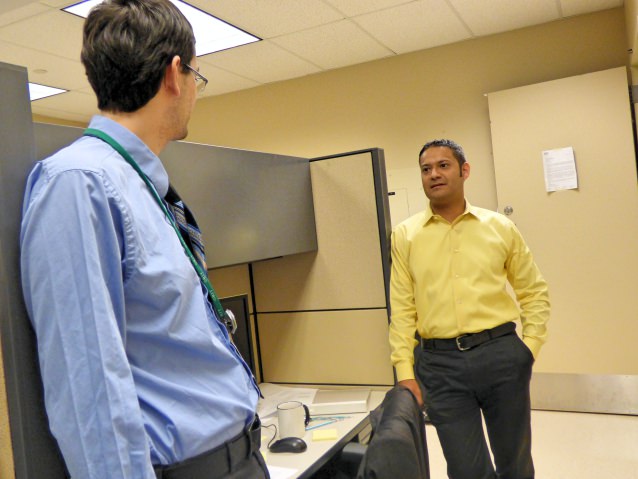
The Doctor of Medical Physics program is a clinically focused degree with a minor component of research.
Whereas the Medical Physics doctorate program (Ph.D.) offered at University of Texas Health Science Center San Antonio prepares the students for a research career in medical physics, the DMP is a professional degree that prepares the students for a clinical career in the either imaging or therapeutic medical physics.
When I first came in I did not know that the DMP was in the works. It just so happened that I was able to join in once the program was approved. It consists of two years of classroom study followed by two years of residency.
I would definitely recommend the program to anybody who is seeking rigorous classroom and clinical training. The program is very well structured and one can receive personal attention from the professors if they want.
What are your future career goals and how has the program helped you with those goals?
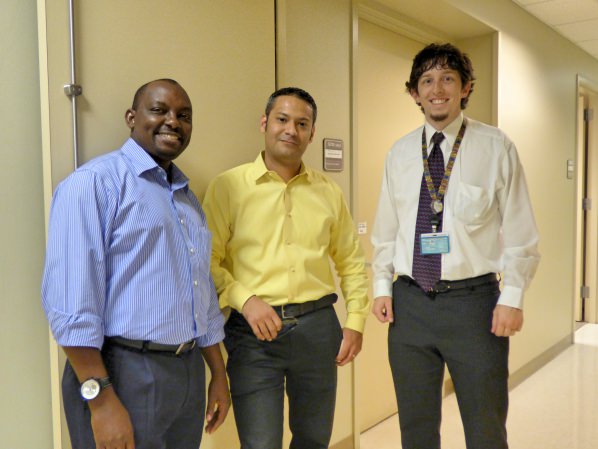
My goal is to become an active member of the medical physics community and I was hired soon after I finished the program. I credit the degree and the faculty with that.
The intensive training we receive at the program prepares us for the challenges of the job and helps us to realize our goals.
When did you realize you were interested in medical physics?
At first, I was interested in the imaging medical physics track but then I learned about therapeutic track and thought that I might fit in better there.
I guess my first exposure to the health field was because I attended a high school geared towards medicine and it just seemed like a proper degree for me to pursue.
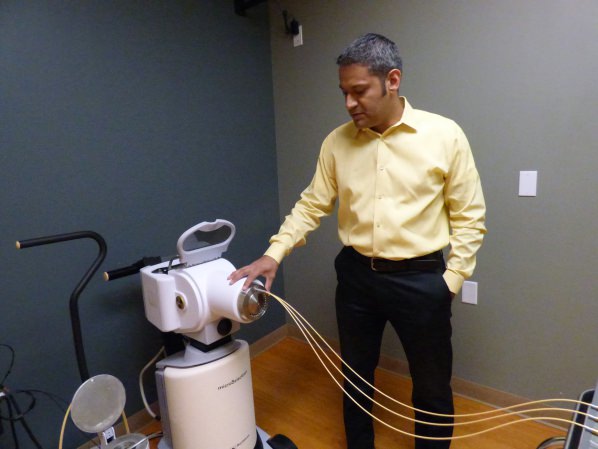
I never thought I’d end up in medicine, despite my background, and yet here I am. It certainly feels like the impact the South Texas High School for Health Professions had on me then pointed me in this direction so many years later. As far as medical physics is concerned, I think I became interested in it as soon as I found out about it.
It just seemed like the perfect mesh of the sciences and that is something that I have always been drawn to.
Why are you passionate about medical physics?
Cancer is one of the scourges of human history. Medical physics gives me the opportunity to help individuals during these trying times.
I know you are the first graduate of the program, how do you feel about that?
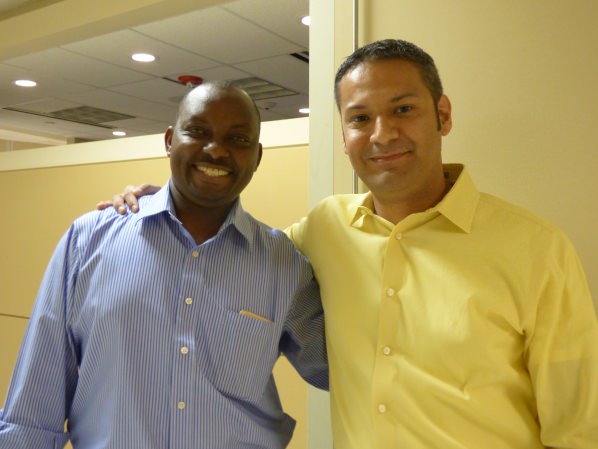
Being the first graduate is a great honor for me. It really is a trip to be honest; I never would have guessed that I would be the first graduate of the program.
I hold the responsibility very high and want to set a high standard for the other students.
Now that I am in the field, I must ensure that I represent The University of Texas Health Science Center San Antonio by maintaining or exceeding the same high standards that were expected of me during the program.
All in all, I take my degree very seriously and being the first graduate lends both great
pride and responsibility that I must uphold.
What were your favorite aspects about the program (hands on experience- internships—faculty,
etc)?
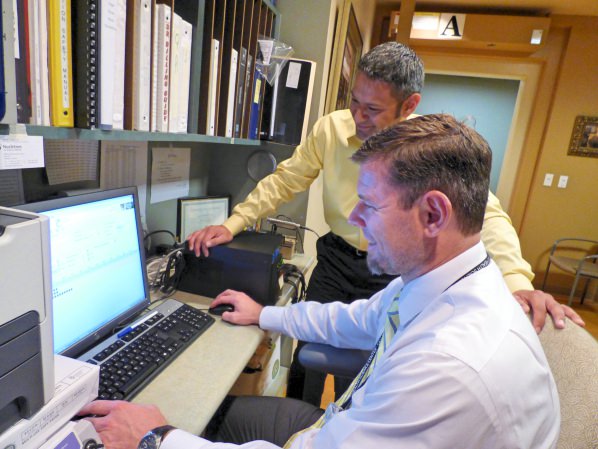
The program is great but I must say that I miss the people the most. I am now in Houston and I very dearly miss the great friends I made throughout this journey, both students and professors.
We have had some great times over the years, many great times, and I will cherish those memories for my lifetime. Seeing the professors acting differently as you progress and noticing the relationships between mentor and student change to colleagues is very satisfying.
Although to be honest, and don’t tell the profs this, but I’ll always look at them as mentors. Of course, now I can bust their chops and not have it be awkward.
I would like to give a shout out to my boy, Dr. Angelo Bergamo. Two years a resident! He knows what that means.
What were some challenges that you faced during your time at school?
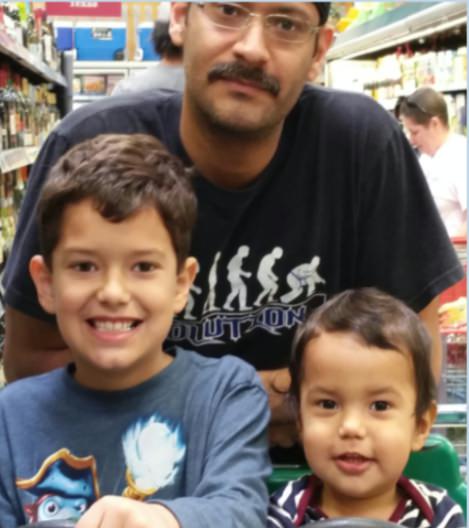
My family is my foundation. They are the reason for my success. It was extremely challenging because my wife stayed behind in the Rio Grande Valley to work and raise our two children or as we call them our gremlins.
I would only get to visit them about once a month for four years, and yet through all this they supported me and encouraged me.
I owe them for all they sacrificed in order for me to achieve this great goal and I intend to give them a better life as a result of this success.
All the challenges are manageable, just need to remember to remain steadfast.
